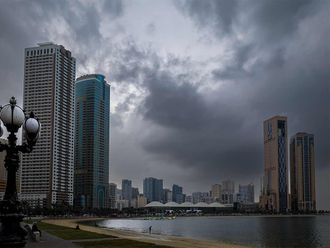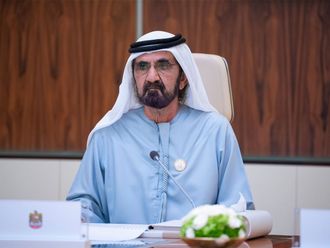Abu Dhabi
The UAE has pledged €50 million (Dh199.4 million) to fund seven Interpol projects to fight terrorism and global crimes. Interpol has identified seven projects to be carried out with funding from the UAE, and these projects are aligned to Interpol’s three crime programmes — terrorism, organised and emerging crime and cyber crime.
The projects which will be implemented over five years will tackle the following issues:
Counter-terrorism
The threat posed by foreign terrorist fighters’ recruitment and movement around the globe is unprecedented. The availability of, and access to, violent literature and propaganda in multiple languages has also grown exceptionally and has changed the way new recruits are being targeted and radicalised.
Interpol experts collect, store and analyse information on terror suspects, groups and their activities, and exchange data with member countries and other international organisations.
Interpol circulates alerts and warnings on terrorists, dangerous criminals and weapons threats to police in member countries. The entity also offers a range of global policing capabilities to help members enhance security at their borders, and works with national authorities to extend access to its 24/7 secure communications network.
In the event of a terrorist attack, members can also request the assistance of an Interpol Incident Response Team to provide investigative and analytical support.
Migrant smuggling, human trafficking and child exploitation
In the majority of human trafficking cases, women, men and children are trafficked for sexual exploitation and forced labour.
A Europol-Interpol report suggests that 90 per cent of the migrants entering the EU are facilitated through criminal networks, and originate from more than 100 source and transit countries.
Interpol’s International Child Sexual Exploitation image database helps identify victims, abusers and locations.
As of January 2017, investigators in 49 countries had direct access to the database and have assisted in the identification of more than 10,000 victims of child sexual abuse and the arrest of thousands of offenders.
Five children identified every day in 2016.10,000 victims identified.4,700 offenders arrested.
49 countries + Europol are connected to the database.
Protecting cultural heritage
Looting of cultural heritage is said to be, together with oil trafficking and kidnapping for ransom, the most common and profitable source of income for terrorist groups.
To help tackle the theft and trafficking of cultural heritage and works of art, Interpol maintains a global database of stolen works of art and supports member countries in their international investigations that help identify and disrupt the criminals behind the destruction of cultural heritage sites.
The database currently contains 50,000 records, recognised by the UN Security Council team monitoring sanctions against Daesh, Al Qaida and Taliban.
Interpol is developing a mobile application which will enable museums and owners of large art collections to create a catalogue of their inventory that can quickly and easily be added to Interpol’s database in case of theft.
Illicit goods and global health
Interpol combats the trafficking of illicit products and has a proven record of success coordinating and facilitating global and regional enforcement operations, leading to the seizure of millions of illicit products and the dismantling of many criminal networks.
Interpol will collect data and intelligence, strengthen existing capacity, improve cooperation and gather experts.
Illicit drug trade
Interpol’s intelligence officers focus on the most commonly used and trafficked narcotic drugs — cannabis, cocaine, heroin and psychotropic substances — in addition to precursor chemicals.
A major global objective is the establishment of a cross-border approach to tackle identified drug crime areas through the global coordination, increased access to database and exchange of lessons learned from successful investigations in other regions of the world.
Vehicle crime
The Interpol Stolen Motor Vehicle database is a vital tool in the fight Against international vehicle theft and trafficking.
Last year, more than 120,000 motor vehicles worldwide were identified as stolen, thanks to this database.
National police authorities are able to gain investigative leads on organised vehicle crime activities in areas where routine checks are not usually possible.
In future, collaboration could be extended to additional industries. For example, insurance companies, banks and financial institutions also lose billions of dollars annually due to international vehicle crime.
Cyber crime
Interpol’s activities are centred around three global crime programmes: counter-terrorism, organised and emerging crime, and cyber crime, each of which has a 2016-2020 strategy. These strategies, and the initiatives of which within them, are all supported by a set of policing capabilities including data management, criminal analysis, forensic support, fugitive investigation support, a command and coordination centre, capacity building and training, innovation and special projects.
Source: Interpol General Secretariat











